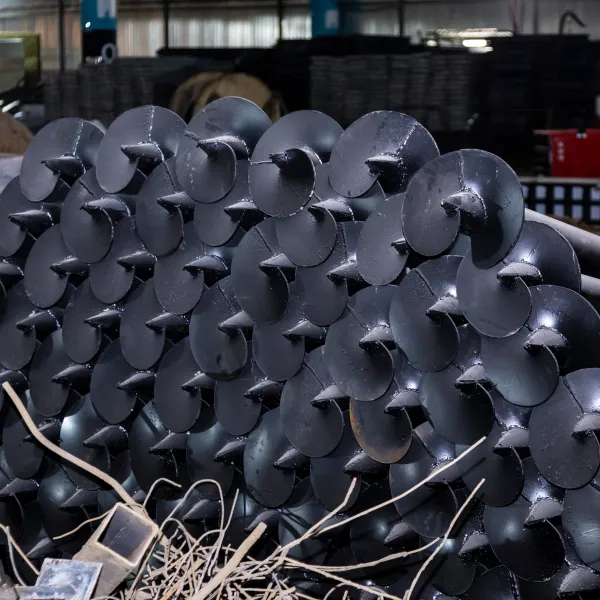
There are several construction products, such as helical piles and piers, that are advertised as ICC-ES approved products. What does that mean to the end user?
In this article, we will briefly describe ICC-ES, the process used to obtain an ESR report, and the purpose of it. ICC-ES, a subsidiary of ICC (International Code Council), is a nonprofit independent company accredited by the American National Standards Institute and by the Standards Council of Canada under ISO/IEC Guide 17065 (Conformity assessment – requirements for bodies certifying products, processes, and services). ICC-ES provides technical evaluations of construction products, components, methods, and materials, according to acceptance criteria that are based on code requirements and international standards (https://www.iccsafe.org/products-and-services/codes-standards/). ICC-ES is the most recognized evaluation agency in North America.
For the evaluation of our helical pile and pier products, ICC-ES uses AC358 (acceptance criteria for helical pile systems and devices) issued in 2007. Per AC358, there are four requirements to obtain an ESR: submittal of helical pile product test results, calculations per code requirements, quality documentations, and follow-up inspections. The required testing, both lab and field, must be conducted by a testing lab accredited per the international standard (ISO 17025). Product design capacities and strength calculations must be determined according to the applicable codes. The helical pile and pier manufacturer seeking an ICC-ES report, must have a quality manual in place (approved by ICC-ES), and it must be effectively implemented throughout the production process – from incoming material to the final product – before it is shipped to the end user. The inspection of the manufacturer’s plant is conducted twice per year by an agency that must be accredited per the international standard (ISO 17020). Once all the requirements are submitted and the product for the evaluation is found to be compliant with code requirements, ICC-ES will publish a report to that effect and make the report available to the public. An ICC-ES evaluation report provides evidence that a construction product complies with the applicable codes, and therefore helps agencies that enforce building regulations, and the building industry in general.
Cantsink helical pile and pier products were tested by an independent testing laboratory (CTL | Thompson, certificate TL-342) that is accredited by IAS (International Accreditation Service), evaluated by an independent evaluation services agency known for its impartiality and technical expertise (ICC-ES), and is being inspected twice a year by an inspection agency accredited by IAS (AA-735). An accreditation and inspection agency’s stamp of approval means you can be confident that Cantsink’s products meet the most stringent of standards. Additionally, these accreditation bodies, such as IAS, are signatories of what is called Mutual Recognition Arrangement (MRA) under the International Laboratory Accreditation Cooperation (ILAC). This arrangement is designed to support international trade by promoting international confidence and acceptance of accredited laboratory test data, as well as eliminate technical barriers to global trade, such as the retesting of a product each time it enters a new economy. Cantsink’s helical pile product is ICC-ES approved with ESR-1559. (http://2makvy1ffffc45t31i1e15sp-wpengine.netdna-ssl.com/wp-content/uploads/2021/01/ESR-1559_December_2021-1.pdf). As described above, this Cantsink product was tested, evaluated, and inspected in accordance with the highest standards. It is reliable, cost-effective, and can be used globally.
Finally, when reading an ESR for a helical pile or pier product, one must pay specific attention to the reported soil pile capacity in tension and compression. Per AC358, this soil capacity is limited by the least one obtained from capacity-torque correlation and axial verification tests, which are used to determine the soil capacity of a pile installed to the maximum rated torque of the product.
Cantsink helical piles and piers are manufactured in Metro Atlanta using the company’s patented design and 100 percent recycled U.S. steel. Additionally, Cantsink has a net-zero energy manufacturing facility using solar energy to power its operation.
To learn more about helical piles, sign up for Cantsink’s free webinars and receive continuing education credits through NCSEA and AIA.
Additional Resources:
ICC: International Code Council (https://www.iccsafe.org/)
ICC-ES: ICC Evaluation Service, LLC (https://icc-es.org/)
NCSEA: National Council of Structural Engineers Association (http://www.ncsea.com/)
AIA: The American Institution of Architects (https://www.aia.org/)